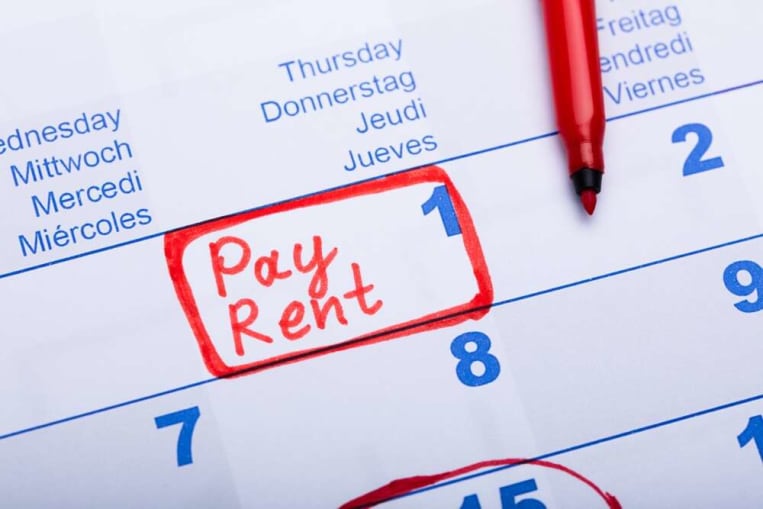
BBB Business Tip: What to do when you can't pay - or collect - rent

(Getty Images)
Many tenants reach the point that they are unable to pay rent. This poses a situation to small business owners who rent their place of business and are struggling to pay, as well as landlords who are watching their own source of income dry up if their renters are facing a difficult financial situation. In both cases, what can be done?
Understand Local Provisions for Unpaid Rent
Under normal circumstances, landlords can provide small business owners (and tenants in general) with notice when they miss a rental payment. If a tenant still fails to pay outstanding rent, the landlord can take action to collect unpaid funds or to have the tenant evicted. That said, the current pandemic has affected what is considered a “normal” procedure. Many states have issued eviction moratoriums, which could override the terms of the lease and keep tenants from getting evicted, for now. Check with your local government to find out what provisions are in place where you live and how long they will last.
Review the Terms of the Lease
The details of what should happen when a tenant fails to pay rent are all outlined in the lease agreement, so now is the time to review the terms of the lease. Each party’s options and legal obligations depend largely on what is written in this legal agreement. The lease may offer emergency provisions, suspending rent obligations during times of crisis or forced shut down. Such provisions are rare, but it’s worth reviewing just the same.
Renters, if your lease is unclear, you can consult with a lawyer to decipher it and to discuss strategies when negotiating with the landlord. If you can’t afford an attorney, information can be found at the legal aid resources from the American Bar Association and the Canadian Bar Association.
Keep the Lines of Communication Open
Open communication is key, especially during an unsual situation such as a pandemic. If you are a small business owner struggling to cover the rent, call your landlord to discuss the situation. For many landlords, working out an agreement is mutually beneficial, if it means the tenant’s business will survive when state mandated stay-at-home orders are lifted. Some landlords may even be willing to suspend a payment, defer rent, or lower monthly payments for a specified period of time.
If you are a landlord who has yet to receive payments from your tenants, it’s wise to do the same. Get in touch and discuss the situation openly. Good tenants who are reliable will usually be willing to work out an arrangement to pay owed funds as soon as they get back to work or are able to. Even if coming to an agreement proves difficult, the first step to a solution is getting a clear understanding of your tenants’ financial situation.
Consider All Options
If you are a small business owner, take some time to evaluate your finances to find a solution to your rent dilemma. After an honest evaluation, you may come up with an unexpected solution. Think about the following:
- Do you have savings you can tap into that will cover your rent or mortgage?
- Can you allot the money you received as a stimulus payment for essentials like rent and utility bills?
- Could you take out a low interest loan with your bank to help you stay afloat and maintain your business for a few more months?
If you are a landlord and your tenants are struggling, consider the following options. If circumstances still warrant evicting a tenant, consider this option, but keep in mind that it will likely take longer to go through the legal process than it did before coronavirus hit.
Instead, think about the following:
- Lowering your tenants’ rent to a price that covers your expenses but forgoes profit for the time being
- Forgiving one month’s rent
- Working out an arrangement that postpones rent payment, while eliminating late fees and penalties
Look for Outside Assistance
Some cities are now offering rent vouchers and emergency funds for renters in need. Find out if there are organizations in your area offering this kind of assistance for small business owners. If you are a landlord, you can do the same research in behalf of your renters. After all, if they get help, you’ll get rent.
In addition, landlords having trouble paying their own mortgage can get in touch with their lender to find out if they are offering any assistance to borrowers who have been affected by COVID-19. Some counties and states have extended the due dates for property taxes and eliminated late fees and interest. A quick visit to your local tax assessor’s website will tell you if you qualify.
For More Information
Find more tips on recovering, keeping safe, and growing your business, see our BBB.org/Coronavirus and our BBB.org/SmallBusiness.
Still Need Assistance?
Contact Your Local BBB
Your local Better Business Bureau can assist you with finding businesses you can trust. Start With Trust®.
Additional Resources
Let BBB help you resolve problems with a business
Research and report on scams and fraud using BBB Scam Tracker
Learn more about the value of BBB Accreditation